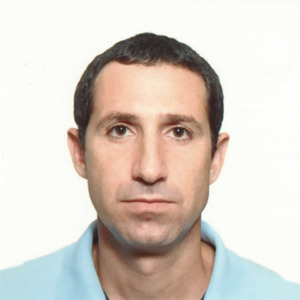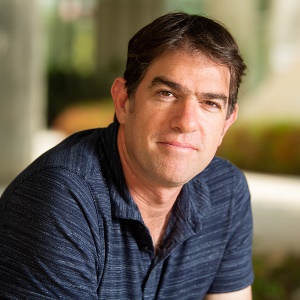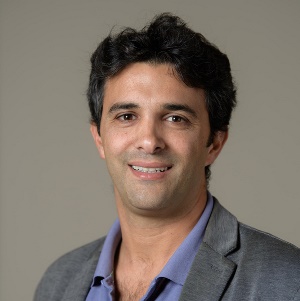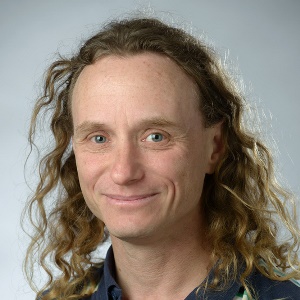Today (Thursday, February 4) is World Cancer Day 2021
World Cancer Day every 4 February is the global uniting initiative led by the Union for International Cancer Control (UICC). By raising worldwide awareness, improving education and catalyzing personal, collective and government action, they work together to reimagine a world where millions of preventable cancer deaths are saved and access to life-saving cancer treatment and care is equal for all - no matter who you are or where you live.
Created in 2000, World Cancer Day has grown into a positive movement for everyone, everywhere to unite under one voice to face one of the greatest challenges in history.
Each year, hundreds of activities and events take place around the world, gathering communities, organizations and individuals in schools, businesses, hospitals, marketplaces, parks, community halls, places of worship - in the streets and online - acting as a powerful reminder that we all have a role to play in reducing the global impact of cancer.
Let's have a look at 6 cancer research studies (in alphabetical order by researcher) currently being carried out at Ben-Gurion University.

Targeting Squamous Cell Carcinoma
Dr. Idan Cohen, Shraga Segal Department of Microbiology, Immunology and Genetics
Cancer treatment is currently shifting toward more personalized approaches whose successful application requires knowledge of differences in the expression patterns of specific markers of cancer. Aberrant histone modifications are often reported in cancer and could serve as promising markers, given their reversible nature as well as their important roles in controlling gene expression during cancer initiation and progression. Our research focuses on the specific role of histone ubiquitination in squamous cell carcinoma, the second most common form of human malignancy and a major cause of healthcare and economic challenges, with poor prognosis and survival rate when it metastasizes. Our preliminary studies indicate that histone ubiquitination in the skin epithelium maintains the oncogenic network at a repressed state, thereby suppressing tissue tumorigenesis. By combining cutting-edge epigenetics and functional genomics methodologies with genetic mouse models, we aim to gain fundamental insights into the epigenetic molecular mechanisms that regulate oncogenic processes. We believe that such insights will have important diagnostic and prognostic implications and a great potential for identifying new therapeutic targets or alternative treatment strategies for cancers.

Alpha particles for the Treatment of Solid Tumors
Dr. Tomer Cooks, Shraga Segal Department of Microbiology, Immunology and Genetics
Dr. Cooks is part of a team that developed a method to enable alpha particles to attack solid metastatic tumors. A company, Alpha TAU Medical has been formed to commercialize the technology. In 2019, the first clinical trial was a success. Out of around 40 patients, all the tumors were reduced. Among 80 percent of patients, the tumors were eliminated completely and, in 60 percent of those, the tumors did not return, and the patients were declared cancer-free.

Personalized Medicine for Esophageal and Head & Neck Cancers
Dr. Moshe Elkabets, Shraga Segal Department of Microbiology, Immunology and Genetics
Treatment of esophageal and Head & Neck cancer patients with immunotherapy and targeted therapy has shown remarkable positive outcomes and prolong the survival of a fraction of cancer patients. However, major challenges still exist - primarily a low response rate to the treatment of about 20% and the induction of severe aberrant effects. Thus, improving current treatments, and development of more potent treatments are urgently needed.
In the Elkabets lab, we use molecular, genetic, immunological and biochemical tools, at clinical and pre-clinical stages, to overcome such challenges. Specifically, we mimic the malignancy in mice by growing human tumors in mice, and by editing the DNA of the mouse to generate tumors with a high similarity to the mutations observed in patients. These pre-clinical models are required for identifying therapy combinations that induce tumor elimination. Moreover, we develop new agents that aim to eradicate metastatic cells, and we develop novel assays to recognize the response to therapy. Altogether, our lab is a pioneer in the field of personalized medicine in esophageal and Head & Neck cancers.

Female Camel Antibodies to Fight Prostate Cancer
Prof. Niv Papo, Avram and Stella Goldstein-Goren Department of Biotechnology Engineering and The National Institute for Biotechnology in the Negev
Prof. Niv Papo is utilizing antibodies from female camels to target prostate cancer. Sharks and female camels are the only animals to naturally produce these nanobodies, which bind to cancer cells but not regular ones. Just 10% of the size of regular antibodies but with stronger affinity to the target cancer cells, they successfully deliver potent drugs to kill prostate cancer cells in mouse models without damaging normal cells. Their utilization as therapeutic reagents as well as diagnostic agents is in the process of commercialization.

Cancer Biology and Glucose Starvation
Dr. Barak Rotblat, Department of Life Sciences and The National Institute for Biotechnology in the Negev
We are interested in the molecular mechanisms supporting cancer cell survival and adaption to stress such as glucose starvation and chemotherapy. Molecular aspects we are studying:
Long noncoding RNA
Previously depicted as the 'dark matter of the genome', it is becoming clearer that genes producing long noncoding RNAs (lncRNA) are important players in all aspects of cell biology. What do these lncRNAs do? They bind proteins, DNA and RNA to regulate their activity (they do other things as well). While there are more than 100,000 different lncRNAs, only a few 100s have been characterized to date. We found one such lncRNA that promotes chimo-resistance in glioblastoma (mostly adult brain cancer) and survival of medulloblastoma tumors (pediatric brain tumor).
What do tumor cells do when they run out of glucose?
Tumor cells rely on glucose to fuel their growth. Cancer cells in tumors try to uptake as much glucose as they can and compete for glucose. This leads to low glucose levels in tumors and, essentially, tumor cells suffer from glucose starvation. We argue that if we understand how tumor cells adapt to glucose starvation, we can block these adaptation processes and kill tumor cells but not normal tissue cells, as these do not suffer from glucose starvation and are not as dependent on these mechanisms. We identified proteins important for tumor cell survival during glucose starvation but not normal conditions and drugs killing tumor cells in glucose starvation but not normal conditions, opening up exciting therapeutic opportunities.

VDAC1 – the all-types of cancer killer?
Making triple-negative breast cancer treatable
Prof. Varda Shoshan-Barmatz, Department of Life Sciences and The National Institute for Biotechnology in the Negev
While cancers are diverse in type and etiology, they frequently share bioenergetic abnormalities, regardless of cellular or tissue origin. Since the first linking of cancer with metabolism by Warburg, who viewed cancer as primarily a metabolic disease, many studies have refined our understanding of how metabolic reprogramming in cancer cells influences tumorigenesis. Tumor cell metabolism is now seen as a major cancer hallmark and can even be regarded as an “Achilles' heel" of cancer, providing a unique therapeutic opportunity to effectively eliminate tumor cells by targeting their energy metabolism.
Indeed, we identified a protein that is highly expressed in different tumors, the voltage-dependent anion channel (VDAC1), considered the mitochondria gatekeeper. VDAC1 provides the major transport pathway for metabolites that are required for cancer cell metabolic and survival pathways.
Our studies demonstrate depletion of VDAC1 altered cancer hallmarks, including a rewiring of cell metabolism and of pathways for growth and survival that underlie the malignant phenotype. We showed that down-regulation of VDAC1 resulted in a multi-pronged attack on cancer hallmarks and is common to cancers, such as glioblastoma, lung cancer and triple-negative breast cancer, regardless of their different origin and carried mutations. Moreover, deleting VDAC1 resulted in inhibiting cell proliferation and tumor growth, eliminating cancer stem cells, inhibiting invasion and angiogenesis and inducing cancer cell differentiation into normal-like cells. For example, in the case of glioblastoma differentiation into neuron- and astrocyte-like cells and in the triple-negative breast cancers, which do not express estrogen and progesterone receptors, and excess HER2 protein, and do not respond to hormonal therapy or medicines that target HER2 protein receptors.
Interestingly, we found that by silencing the expression of VDAC1 this sub-type of breast cancer that is not amenable to endocrine therapy and often exhibits resistance to current chemotherapeutic agents, now expressed all the above receptors, namely is converted into the more common breast cancer type and thus can be subjected to a variety of highly successful treatment options.
The results support emerging paradigms that cancer cell metabolism controls cancer hallmarks and that its reprogramming reverses tumor properties, a promising therapeutic approach for various cancers.
Media Coverage:
Israel21C
The Media Line
World Israel News